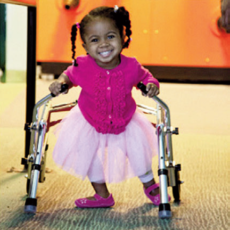by: Caitlin Hoff Someone who was born with a disability or grew up from a young age with an impairment can tell you that for them, it is their “normal.” They have grown up instinctively adapting to an able-bodied world. What we don’t often talk about is a parent’s initial adjustment to their child’s disabilities. Overtime, these parents become expert caretakers and passionate advocates for their child and other children with disabilities, but it’s not […]
Category: eParent Connect
Sensory Challenges in Children
by Lisa Cohn When I asked my son, Michael, age 10, to explain what it feels like to have “sensory processing disorder, (SPD)” he said that the sound of a food blender sends him sprinting into a different room; the feel of a wool sweater against his skin “is like a bomb to me.” For Moira, age 10, loud noises are difficult. And it’s hard for her to sit still for more than an hour […]
Should You Explain the Diagnosis to the Child?
BY: Tony Attwood, Ph.D. The immediate answer is yes. Clinical experience indicates that it is extremely important that the diagnosis is explained as soon as possible and preferably before inappropriate compensatory mechanisms are developed. The child is then more likely to achieve self-acceptance, without unfair comparisons with other children, and be less likely to develop signs of an anxiety disorder, depression or conduct disorder. When and How do you Explain the Diagnosis? At what age […]
How to Minimize Mealtime Stress for Special Needs Children & Families
Studies have shown that sharing regular meals as a family has many benefits for children and their parents or caregivers. Participating in a mealtime ritual has been linked to stronger family bonds, healthier habits, better grades, and overall smarter choices. Making time to eat regular meals together and creating a comfortable dining space in your home is especially important for the safety and overall health of special needs children, too. Children’s mealtime behavior can be […]
Family Matters: Exploring Risks for Obesity in Autism
Marina Sarris Interactive Autism Network at Kennedy Krieger Institute Why are children and adults with autism more likely to be obese than other people?1-3 Studies show that many have extremely picky eating habits, do not exercise as much as others, or take medications that cause weight gain.4-11 While those may affect weight, a new study says the biggest risk factor, at least for youth, has nothing really to do with autism: it’s families.12 Youth whose […]





